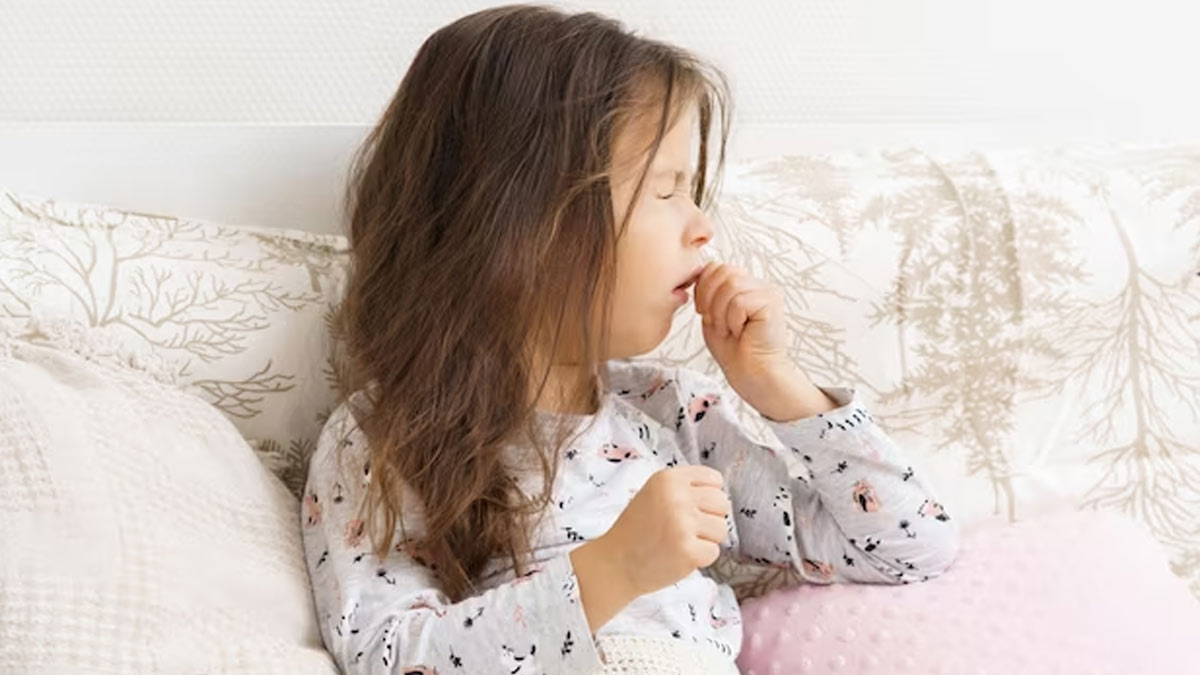
Asthma is the most frequent chronic condition among children, affecting roughly 235 million people worldwide, according to the World Health Organization (WHO).
It is a condition that affects the airways, causing them to become inflamed and narrow, leading to breathing difficulty. To learn more about it, we spoke to Dr Kushal Banerjee, Senior Consultant, Dr Kalyan Banerjee’s Clinic, New Delhi.
Table of Content:-
Symptoms of Asthma in Children
The common symptoms include:
- Wheezing
- Coughing
- Shortness of breath
- Chest tightness
He said, "The diagnosis of symptoms can be difficult, as these symptoms may be present in other conditions, such as viral respiratory infections, allergies, or even exercise-induced bronchospasm." Bronchospasm occurs when the muscles lining the airways in your lungs contract.

"Therefore, asthma diagnosis in children requires a medical history, thorough physical examination, and diagnosis. We should not be quick to jump to a diagnosis of asthma and visit your health care provider if your child exhibits any symptoms," he added.
Also Read: World Asthma Day 2023: Management Tips During Season Change
Treatment of Asthma in Children
Dr Banerjee said, "Managing asthma in children requires a long-term approach that focuses on preventing the symptoms and reducing the risk of flare-ups." He said that identifying and avoiding the triggers, such as pollen, dust, and pet dander can help reduce the risk of flare-up asthma attacks.

Dr Banerjee said, "The conventional treatment for asthma in children typically involves using inhalers, nebulisers, and medications to reduce inflammation and open up the airways." He said that these treatment options can have side effects and may not be suitable for all children. Also, they have not demonstrated any curative action either.
Treatment through Homoeopathy
Dr Banerjee said that homoeopathy can address asthma in all age groups. "It offers a holistic approach to healthcare that addresses the root cause of the illness rather than just the symptoms," he added.
He stated, "Homoeopathic remedies are safe, non-toxic, and gentle, making them an ideal choice for children. These medicines do not cause a feeling of lethargy, which is common in anti-allergy medicines."

Also Read: Managing Asthma With Exercise: Here's What You Need To Do
"Homoeopathy works by stimulating the body's natural healing mechanisms, which can help reduce inflammation, improve breathing, and enhance overall health. As a result, it builds a tolerance to allergens, where exposure to triggers no longer causes an episode of asthma," he said. He mentioned that this is particularly useful in areas with high levels of air pollution, where avoiding the triggers is almost impossible.
Dr Banerjee said, "The long-term management of asthma in children using homoeopathy involves not just the use of homoeopathic remedies but also lifestyle changes and environmental control measures." He emphasised the importance of a healthy diet, regular exercise, and stress management in managing asthma in children through homoeopathy. The need for proper sleep and regular outdoor physical activity cannot be stressed enough, he added.
Conclusion
With prolonged homoeopathic treatment, many children can wean themselves off conventional medicine and some may eventually stop suffering from the condition entirely. "In some cases, where the reliance on traditional treatment is high, homoeopathic medicines can significantly help, reducing the possibility of side effects," Dr Banerjee added.
Image Credits: freepik
Also watch this video
How we keep this article up to date:
We work with experts and keep a close eye on the latest in health and wellness. Whenever there is a new research or helpful information, we update our articles with accurate and useful advice.
Current Version
